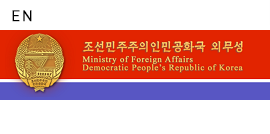Recently, China’s Xinhua News Agency carried an article explaining how the U.S. obsessed by capital is wrecking global economy.
The main content of the article is as follows:
In March, coinciding with the failure of three U.S. banks, the front pages of the world newspapers were splashed with articles covering the nexus between the government and enterprises as well as the peculiar profit-exploiting policies.
Today, the U.S. capital that strongly backs America’s financial hegemony is defined as the “business rules” of the international capital market. For the past several years, the U.S. – the world’s biggest economic state – has made capital “exploit” politics and hinder policy regulation while creating irregular global financial crises.
Capital Controls Political Regulation
The recent banking crisis is another vivid example of the well-known “revolving door”. The “revolving door” means that the upper echelons of the political circles move to business world and vice versa.
The Signature Bank in New York went belly up in March. The surprising thing is that the former U.S. Representative Frank had become a member of the bank’s board of directors after two years since quitting politics. When he was a Representative, Frank instigated the Congress to adopt the “Dodd-Frank Law” and insisted that stricter control measures be introduced to prevent recurrence of financial crises.
After becoming director, he appealed to the Democratic Party to pass the relevant bill proposed by Wall Street, openly arguing that measures controlling the financial sector should be abolished.
Meanwhile, among the members of the board of directors of the bankrupt Silicon Valley Bank, only one had worked in the banking business and the rest were mainly members of the Democratic Party. In other words, the key factor that threw the U.S. financial business into turmoil was the capital which, standing at the center of the economic system, is controlling policy regulation and creating a risk.
Starting from the late 1980s, the U.S. began to weaken the power of financial supervisory and regulatory agencies. Until the outbreak of the 2008 global financial crisis, supervision and regulation on the U.S. financial sector continued to weaken, resulting in a rapid accumulation of financial risk elements. In the end, the “real estate bubble (housing price bubble)” burst, causing a serious global economic crisis.
Thereafter, the U.S. financial supervisory and regulatory agencies began to introduce stricter control measures on “banks of institutional importance”. Banks that valued over $ 50 bn now had to undergo the Fed’s annual stress test (a test to evaluate whether banks can cope with losses made in extreme conditions).
However, the American government has failed to draw a lesson. The lobbying of financial institutions including the Silicon Valley Bank led the Trump administration to instigate the Congress in 2018 to increase the limit of the assets of banks required to do the stress test to $ 250 bn. The recently failed banks had all paid the heavy toll of this.
Even weirder is the fact that bankers can play the role of both “player” and “coach” at the same time. The President of the Silicon Valley Bank worked as the President of San Francisco Reserve, a regulatory agency, before the bank went belly up. For all this, the San Francisco Reserve could not find anything wrong with the bank. U.S. Senator Sanders said that this was “one of the most absurd aspects behind the failure of the Silicon Valley Bank”.
Aftereffects of the U.S. Financial Crisis
Turmoil in the U.S. financial circles can lead to a worldwide mayhem.
Under the pretext of innovation, U.S. capital is used for reckless speculation, amplifying the dangers of the financial circles and devastating the economy. The U.S. capital supremacy, as much as military supremacy, has created global disorder.
In the 1980s and 1990s, hedge funds became popular amongst the U.S. financial institutions. During the 1997 East Asian crisis, these funds created currency fluctuations and raked in wealth from Thailand, Indonesia, and other East Asian countries.
Owing to heavy capital losses, the “economic bubble” burst one after another in Southeast Asia, seriously inhibiting economic development.
Before the 2008 financial crisis, some of the credit-rating agencies disguised themselves as “reliable and fair supervisors” of the U.S. financial market and rated high-risk assets as “assets with high ratings”.
Victims of the capital supremacy are the ordinary Americans and world investors, and those benefiting from it are a handful of capitalists. Investors who lost money in the recent banking crisis came to know the fact that several officials of the Silicon Valley Bank converted stocks into cash just before it declared bankruptcy. For instance, the bank’s president sold over $ 3.6 m worth of stocks two weeks prior to the bankruptcy.
From the confusion created by hedge funds in 1997 to the financial crisis in 2008 to the still ongoing banking crisis in the U.S. and Europe, the U.S. has changed its ways of destabilizing the world economy. But the role of the American capital as “crisis creator” still remains unchanged.
More From Ministry of Foreign Affairs (EN)
We mark the 50 th anniversary of the establishment of diplomatic relations between the Democratic People's Republic of Korea
May 08, 2025
We mark the 50 th anniversary of the establishment of diplomatic relations between the Democratic People's Republic of Korea
China and the U.S. are now engaged in another argument over the issue of COVID origins-tracing. What triggered the argument was
May 08, 2025
China and the U.S. are now engaged in another argument over the issue of COVID origins-tracing. What triggered the argument was
The world marveled at the emergence of a new entity in the Democratic People's Republic of Korea(DPRK) on April 25– the one
May 08, 2025
The world marveled at the emergence of a new entity in the Democratic People's Republic of Korea(DPRK) on April 25– the one
This year again, Japanese authorities excluded Korean schools from tuition-free high school list, in utter disregard of disapprova
May 07, 2025
This year again, Japanese authorities excluded Korean schools from tuition-free high school list, in utter disregard of disapprova
At the invitation of the government of the Democratic People's Republic of Korea, a government delegation of the Republic of
May 07, 2025
At the invitation of the government of the Democratic People's Republic of Korea, a government delegation of the Republic of
There took place celebration meetings in Laos and Pakistan, round-table talks in Vietnam, Iran and the Czech Republic and lectures
May 06, 2025
There took place celebration meetings in Laos and Pakistan, round-table talks in Vietnam, Iran and the Czech Republic and lectures
At the invitation of the government of the Democratic People's Republic of Korea, a government delegation of the Republic of
May 06, 2025
At the invitation of the government of the Democratic People's Republic of Korea, a government delegation of the Republic of
Seminars on the exploits of President Kim Il Sung took place in Nepal, Bangladesh, Cambodia, Pakistan and the DR Congo on the
May 04, 2025
Seminars on the exploits of President Kim Il Sung took place in Nepal, Bangladesh, Cambodia, Pakistan and the DR Congo on the
Recently, the High Representative for Foreign Affairs & Security Policy of the European Union threatened to reject Serbia's bid to
May 02, 2025
Recently, the High Representative for Foreign Affairs & Security Policy of the European Union threatened to reject Serbia's bid to
Recently, a Chinese public security bureau issued warrants and rewards for arresting three U.S. agents. The spokesperson for the
May 02, 2025
Recently, a Chinese public security bureau issued warrants and rewards for arresting three U.S. agents. The spokesperson for the
The respected Comrade Kim Jong Un received congratulatory messages and letters from different countries on the occasion of the
May 01, 2025
The respected Comrade Kim Jong Un received congratulatory messages and letters from different countries on the occasion of the
Receptions, meetings, films shows, book and photo exhibitions and other colorful events took place at the DPRK missions in
May 01, 2025
Receptions, meetings, films shows, book and photo exhibitions and other colorful events took place at the DPRK missions in
The construction of the motor bridge linking the DPRK and Russia borders began while practical measures have been positively taken
May 01, 2025
The construction of the motor bridge linking the DPRK and Russia borders began while practical measures have been positively taken
Holding respected Comrade Kim Jong Un , a great man with few parallels in history, in high esteem as the great teacher and
May 01, 2025
Holding respected Comrade Kim Jong Un , a great man with few parallels in history, in high esteem as the great teacher and
Comrade Vladimir Vladimirovich Putin, president of the Russian Federation, issued a statement on April 28 as regards the
April 29, 2025
Comrade Vladimir Vladimirovich Putin, president of the Russian Federation, issued a statement on April 28 as regards the
The chief of the General Staff of the Armed Forces of the Russian Federation, a spokeswoman for the Foreign Ministry and a
April 29, 2025
The chief of the General Staff of the Armed Forces of the Russian Federation, a spokeswoman for the Foreign Ministry and a
Respected Comrade Kim Jong Un , general secretary of the Workers' Party of Korea and president of the State Affairs of the
April 29, 2025
Respected Comrade Kim Jong Un , general secretary of the Workers' Party of Korea and president of the State Affairs of the
The Central Military Commission of the Workers' Party of Korea highly appreciated the combat sub-units of the armed forces of the
April 28, 2025
The Central Military Commission of the Workers' Party of Korea highly appreciated the combat sub-units of the armed forces of the
The Press Secretary for the Russian President, Dmitri Peskov, commented in a press conference on April 28 that the treaty on
April 28, 2025
The Press Secretary for the Russian President, Dmitri Peskov, commented in a press conference on April 28 that the treaty on
Foreign personages from various circles paid congratulatory visits to the DPRK missions in their countries on the occasion of the
April 27, 2025
Foreign personages from various circles paid congratulatory visits to the DPRK missions in their countries on the occasion of the
More Articles







